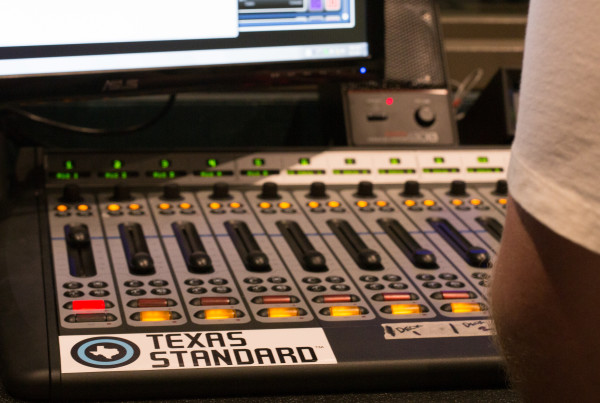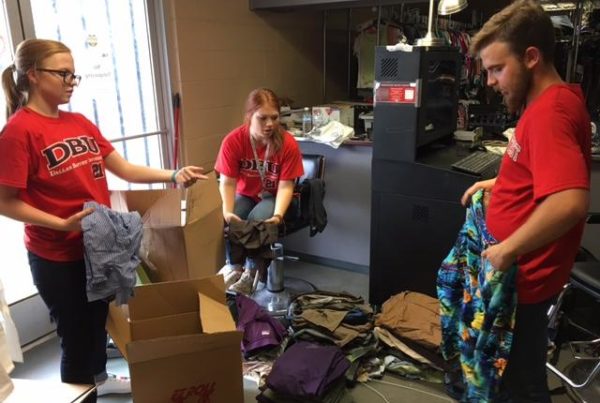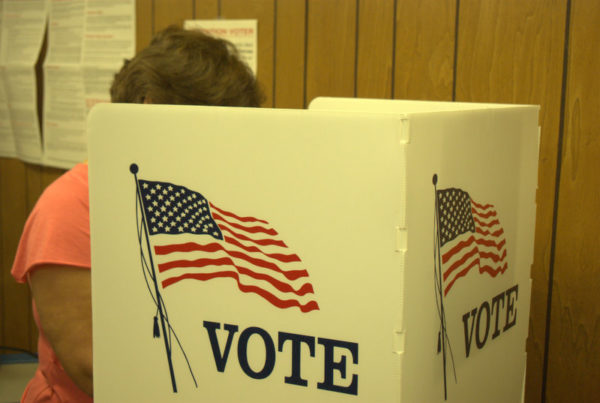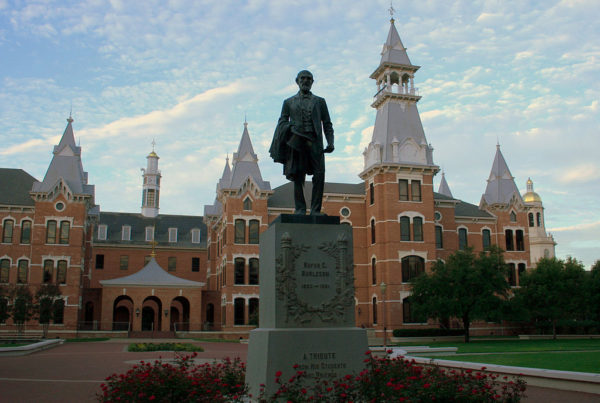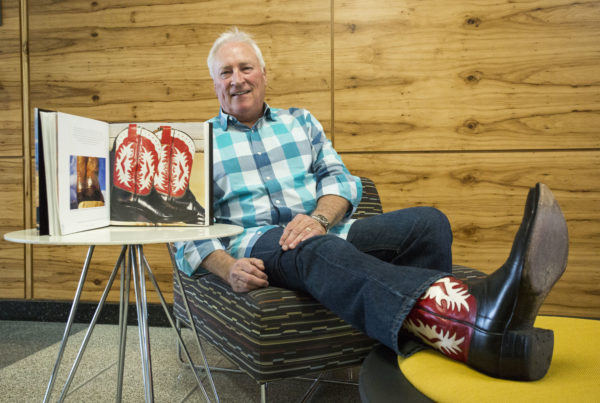The first day KAZI went on the air was during the summer of 1982, and the airwaves were electric. The 35-year-old broadcast was a party.
Dr. John Warfield, his wife and their two teenage children were in the studio, that day.
“Hello, I’m Doctor John Warfield president of Austin Community Radio,” Warfield said on the air. “I’m extremely pleased to welcome you to your community radio K-A-Z-I, 88.7.”
The first day was glorious, but the 35-year journey has been challenging, says Jabari Warfield, John’s oldest child.
“There were many, many days where we thought the plug was going to be pulled off this place. There were many days when we were like, okay, 12 midnight, we are shutting down,” Jabari says.
Now, Jabari is a grown man with children of his own, and he still works at KAZI.
“We are obviously meant to be here,” he says.
Actually, it’s not so obvious. Keeping the only radio station led by African-Americans in a major U.S. metropolitan area — especially one like Austin with a shrinking African-American population — is no small task. KAZI General Manager Steve Savage says as much during a recent tour of the studio.
“The secret to KAZI: We have 97 percent volunteers,” Savage says.
Savage continues the tour: “This is the front office; this is Juliet, she is my office manager. I tell her all the time, If she wasn’t here, I wouldn’t be here — she’s a volunteer,” Savage says.
Juliet Washington says she’s committed to the job.
“I just love what I do. [I have] a passion for the station, so I enjoy it, working here,” she says.
Washington has been at KAZI for 16 years on a volunteer basis. Every DJ is a volunteer, too. Savage is not a volunteer, but his commitment to the station’s success is so strong that when he sold his house in May, he donated $15,000 to KAZI to buy better equipment.
Listeners do the same. Those who want to give, just do. Nobody asks for money.
Savage says another reason why KAZI has been able to stay on the air for 35 years is that even though it plays “black” music, its audience is very diverse.
“A third of our listeners is Latino, a third is white,” Savage says.
It’s one thing to look at those statistics on paper and another to actually see the audience in person. Savage says the station recently put together a concert and decided to give away tickets to the first 50 people who showed up.
“We didn’t see our first black person until number 26,” Savage says.
As the years have gone by and the audience has diversified, has remained constant: the station’s spirit.
Dr. Warfield was an activist. Part of his vision for having a radio station was to have a safe place where the community — any community — could speak freely. Jabari Warfield says that spirit is still there.
“It gives an alternative voice, you know? It’s like saying, Wait a minute, what’s going on with all these unarmed men being killed? What’s going on with the current administration? Why are Muslims being targeted? You know? It questions that, you know?” Jabari says. “When you hear other radio stations you are not going to hear that questioning. With this station, you say, Wait a minute, that’s something we need to address, right or wrong.”
Right or wrong, the legacy goes on, and KAZI continues to be known as “The Voice of Austin.” But during the last years of Dr. Warfield’s life, his own voice turned to a whisper. He died 10 years ago from complications with Parkinson’s disease.
One of last things he whispered was, “I’m very proud of KAZI.”
The listeners of Austin seem to be proud, too. Happy birthday KAZI!




